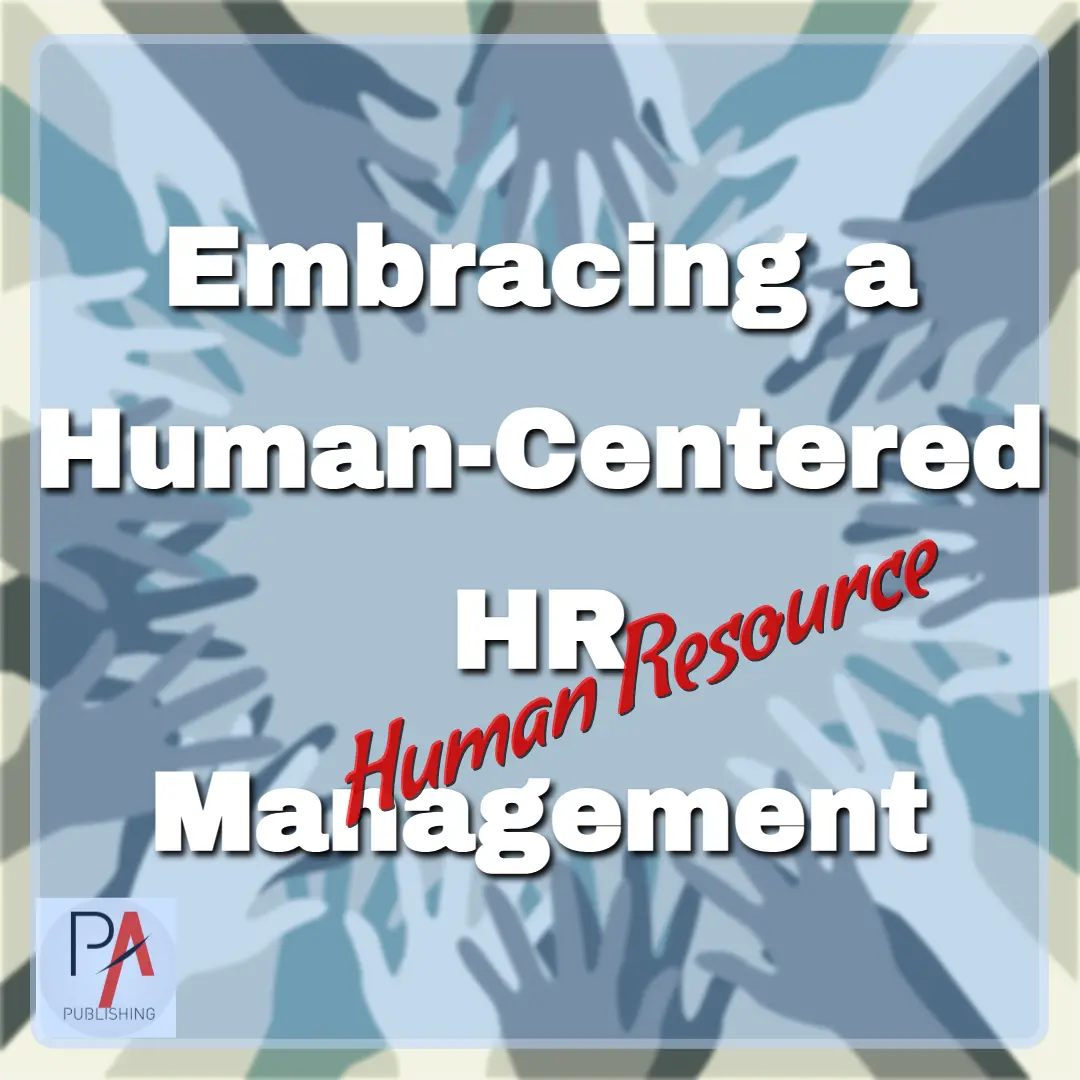Embracing a Human-Centered HR Management
In the ever-evolving business landscape, organizations are profoundly transforming their approach to human resources. The realization that employees are the beating heart of any successful enterprise has prompted a shift towards a more compassionate, human-centered approach to HR management. By placing the well-being and fulfillment of their workforce at the core of their operations, visionary leaders are witnessing a paradigm shift, where the traditional model of a hierarchical and profit-driven workplace is gradually giving way to a more empathetic, people-centric culture.
In this enlightening exploration, we delve into the undeniable benefits of adopting a human-centered approach to HR management. Beyond the buzzwords and corporate jargon, we will uncover the genuine impact of prioritizing the needs of employees, transforming the very fabric of organizational culture. By fostering an environment that values each individual’s uniqueness, aspirations, and potential, businesses can unlock the full potential of their workforce and create a thriving ecosystem of collaboration and growth.
HR Management: Key Strategies for Success
Understanding the Benefits of a Human-Centered HR Management
When HR managers prioritize and put human needs at the forefront of their approach, the transformative impact on an organization’s culture becomes evident. This shift in focus empowers employees, making them feel seen, appreciated, and valued, creating a positive ripple effect. The resultant surge in employee morale fosters a higher level of engagement and cultivates a strong sense of camaraderie among team members.
The benefits of this human-centric culture extend far beyond intangible feelings. Tangible outcomes are achieved, benefiting the organization in numerous ways:
Reduced employee turnover
In a workplace where employees feel heard, valued, and respected, the likelihood of them staying for the long haul significantly increases. This, in turn, minimizes the costs and disruptions associated with frequent turnover and ensures stability and continuity within the organization.
Enhanced creativity and innovation
Organizations inspire a sense of psychological safety by cultivating a nurturing environment that genuinely cares for its employees’ well-being. Employees are more inclined to take calculated risks within this secure space, leading to a surge in creative thinking and innovative problem-solving.
Higher productivity levels
The direct correlation between high morale and increased productivity is undeniable. When employees feel supported and engaged, they are more motivated to invest their energy and talents into their work. This heightened sense of purpose and dedication drives productivity to new heights.
Improved customer service
The impact of a human-centered culture is not limited to internal affairs; it extends outward to customer interactions. Naturally, employees who experience respect and appreciation tend to extend these values to their customer interactions. This results in improved customer service, fostering loyalty and positive client relationships.
Amplified Employee Engagement and Loyalty
When employees feel that their voices are heard, their ideas are valued, and their well-being is genuinely considered, an emotional connection forms with the organization. This powerful bond nurtures a profound sense of engagement, inspiring employees to invest their time and talents wholeheartedly. As a result, employees become not just workers but active stakeholders committed to the organization’s mission and vision. This heightened engagement leads to increased loyalty, reducing turnover rates, and cultivating a workforce that is willing to go the extra mile for the company’s success.
Improved Employee Well-being and Productivity
A workplace that prioritizes the well-being of its employees fosters a sense of balance and purpose. By acknowledging the importance of mental and physical health, companies empower their workforce to perform at their best. As stress levels reduce and job satisfaction rises, productivity experiences a noticeable surge. Employees become more focused, motivated, and proactive, leading to improved efficiency and better overall performance.
Strengthened Employer Brand and Talent Attraction
Word travels fast in the professional world, and organizations that truly care for their employees stand out as beacons of excellence. Adopting a human-centered approach to HR enhances the company’s reputation as an employer of choice and attracts top talent seeking meaningful and fulfilling work environments. The ability to attract skilled individuals further bolsters the organization’s capacity to innovate and excel in the market.

Moreover, a culture that prioritizes human needs is conducive to attracting top talent, as word spreads about the organization’s employee-centric approach. As a result, the organization becomes an employer of choice, allowing it to cherry-pick from a pool of highly skilled and motivated individuals.
Embracing a human-centric approach in HR management yields far-reaching and tangible advantages for any organization. By nurturing a culture that values employees as individuals and prioritizes their well-being, organizations can unleash a thriving, innovative, and motivated workforce that paves the way for long-term success and growth.
In the following sections, we will delve deeper into the essential strategies for implementing a human-centered HR approach, delving into ways to cultivate a supportive and inclusive culture that celebrates diversity and fosters continuous growth. By embracing these principles, organizations can empower their most valuable asset – their people – and embark on a transformative journey toward sustained success and prosperity.
Key Strategies for Implementing a Human-Centered HR Management
Embracing a Human-Centered HR Management: Key Strategies for Success. Transforming an organization’s HR management into a genuinely human-centered approach requires a comprehensive shift in practices and culture. By prioritizing the well-being and development of employees, businesses can create a thriving workplace where people feel valued, empowered, and motivated to achieve their full potential. Here are some essential strategies to guide this transformative journey:
Cultivate a Culture of Listening and Learning
A crucial cornerstone of a human-centered HR approach is actively listening to employees’ voices. HR managers must create open and honest feedback channels, ensuring employees feel comfortable sharing their thoughts, concerns, and ideas. Regular surveys, one-on-one meetings, and focus groups can effectively gather feedback and insights. But listening alone is not enough; acting upon the feedback received is equally important. Integrating employee feedback into decision-making processes demonstrates a commitment to creating an inclusive and responsive work environment, fostering trust and engagement among the workforce.
Foster Transparent and Frequent Communication
Open and transparent communication is the lifeblood of an organization that values its people. HR managers should proactively communicate company updates, changes, and plans. Leaders can foster a sense of belonging and shared purpose by keeping employees informed about the organization’s progress and the reasoning behind decisions. This transparency creates a foundation of trust, essential for maintaining a positive and engaged workforce.
Invest in Employee Development and Growth
Employees are the driving force behind an organization’s success, and investing in their growth is an investment in the company’s future. HR managers should prioritize professional development opportunities, providing access to workshops, training sessions, mentorship programs, and educational resources. A culture that supports continuous learning enhances individual skill sets and encourages innovation and adaptability, positioning the organization for long-term competitiveness.
Promote Work-Life Balance and Flexibility

Recognizing the importance of work-life balance is a crucial aspect of a human-centered HR approach. Encouraging flexible work arrangements, such as remote work options, flexible hours, or compressed workweeks, allows employees to harmonize their personal and professional responsibilities. When employees feel supported in achieving a healthy work-life balance, they are less likely to experience burnout and are more likely to remain committed and dedicated to their roles.
Champion Diversity, Equity, and Inclusion (DEI)
A genuinely human-centered HR strategy prioritizes diversity, equity, and inclusion. HR managers should actively work to create a diverse and inclusive workforce that represents various perspectives and backgrounds. This involves implementing fair hiring practices, offering equal opportunities for career advancement, and fostering an inclusive workplace culture. Embracing DEI leads to a more creative and innovative workforce and demonstrates the organization’s commitment to social responsibility and fairness.
Recognize and Celebrate Achievements
Acknowledging and celebrating employee achievements is a powerful way to show appreciation and reinforce a positive culture. HR managers should implement recognition programs and celebrate milestones and successes, whether big or small. Publicly recognizing employees’ contributions boosts morale and fosters a sense of belonging and camaraderie within the organization.
Organizations can pave the way for a successful transformation towards a human-centered HR management approach by adopting these key strategies. Putting people first, fostering a culture of empathy and respect, and investing in employees’ growth are the building blocks of a workplace where individuals thrive and the organization achieves sustainable success. In prioritizing the well-being and development of their workforce, businesses lay the foundation for a future where employees are engaged, loyal, and passionately committed to driving the organization’s growth and prosperity.
FAQs – HR Management
1. What is human-centered HR?
Human-centered HR is an approach to HR management that prioritizes the needs, well-being and happiness of employees.
2. Why is human-centered HR important?
Putting people first can lead to a more positive, productive workplace, with enhanced creativity and innovation, improved customer service, and lower employee turnover.
3. What are some strategies for implementing human-centered HR?
Key strategies include listening to employee feedback, investing in employee development, encouraging work-life balance, and transparent and regular employee communication.






